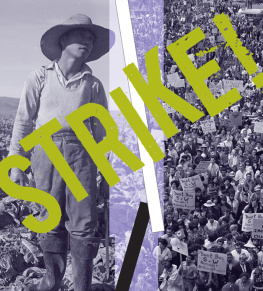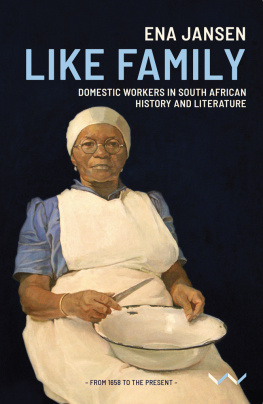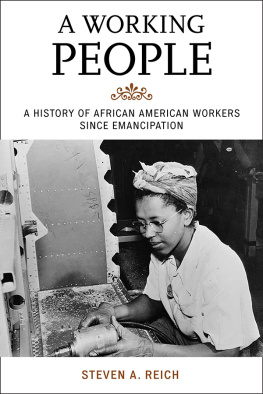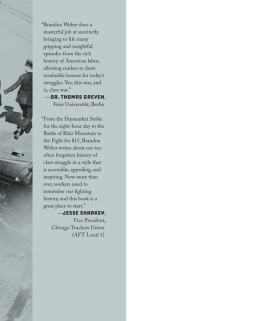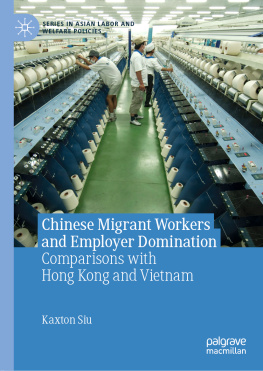Preface
This is a story about people whose lives are on the line. They work in a meatpacking plant, on double-digit shifts, day after never-ending day. Bodies ache. Lives and limbs are in peril. Hours of repetitive, dangerous, grueling labor pounds their spirits. Their dignity is beaten down as a matter of business.
This is a story of how working-class immigrants from Latin America and native-born African American workers, who spend most of their waking lives working on the line, negotiate social boundaries and construct identities as they labor alongside one another. This is also a story of how I, as a sociologist, situated myself on the line to understand firsthand the nature of changing race and ethnic relations in the New South.
In the summer of 2009, when I was deciding on my dissertation topic, the American South was in the midst of a demographic and social transformationone that brought several million Latino/a From earlier research on intergroup relations, I knew that these questions depended on the social relations and economic circumstances in which migrants were embedded. I realized that in order to really understand if and how Latinas/os were gaining a sense of belonging within the American racial and class stratification systems, I needed to go where working-class migrants and native-born Americans spend most of their waking hours: the workplace. Because the food processing industry, with its insatiable appetite for labor, has been such an important draw for Latino/a migrants and remains a significant employer for working-class African Americans, I decided to situate my research in this work environment. Finally, I wanted to understand at the ground level whether this New South was being shaped by rising tensions between Latino/a newcomers and African Americans, as some scholars have argued, and if so, how this related to Latinas/os emergent sense of their place within the American stratified system of belonging.
To this end, I decided to get a job at a meatpacking plant in North Carolina. In July 2009, I packed up my belongings and moved to a rural community of around ten thousand people surrounded by hog and poultry farms and corn and tobacco fields. At the end of July 2009, after waiting in line overnight outside the factory gates with several dozen other people eager to apply for a job at Swine Inc., I was hired as a regular production worker. twenty-three in-depth interviews with Latina/o and African American workers collected from December 2010, when I quit the job, to April 2012.
Sitting on a beach in Wilmington with my girlfriend, just days before I was to start my job, we talked excitedly about this unexpected adventureunexpected because I had not anticipated it would be so easy for me to get hired, and an adventure because it would be a foray into a world normally hidden from scientific observation. While I was deeply concerned that I would not make it beyond a few days, I was hoping I could last at the plant for a few months, enough time to observe intergroup relations and perhaps even develop casual friendships with coworkers. In the end, over my sixteen months, I developed intimate friendships with many people with whom I spent thousands of hours laboring on the line and eating, drinking, and dancing off the line. It was not easy. At times I was overwhelmed with loneliness, confusion, isolation, and frustration. At times my body experienced injury and pain to a degree I had never felt before and in ways I had not known were possible. The ruthless regimen of work and subjugation literally crushed my spirit, producing feelings of desperation, hopelessness, and anger, although these ultimately gave way to a kind of alienated self-discipline.
As a regular worker, first in Marination and later in Loin Boning and Packing, I directly observed and experienced the life of a meatpacking worker. As far as I know, management was unaware of my ulterior motives for working at the plant, so my status as a PhD student did not afford me preferential treatment. The Human Resources recruiter who interviewed me barely glanced at the education and work experience I listed on my application, and didnt inquire about the sociology professor listed as my reference, Jacqueline Hagan. I was seemingly just another warm body. But because I was identified by others as white, from here, and possessing bilingual skills, I received preferential treatment relative to other Latina/o newcomers. Supervisors shielded me from the toughest jobs, personally warning me that work on the straight knife or whizard knife would ruin me. Apparently, they were less concerned about the hundreds of other women and men, mostly Central American and Mexican, who worked knife jobs. Those were perhaps not fully persons, and their bodies perfectly suitable for ruining.
Because I am a native Spanish speaker from Puerto Rico, I was frequently called on to translate supervisor speeches and reprimands, and sometimes to gather signatures from Spanish speakers for weekly safety training forms. Usually I did these tasks with displeasure because I didnt want to be seen by workers as managements favorite, and supervisors wondered out loud why I would not be ecstatic to get a moments break from real work. And when I sought medical treatment for my handsI acquired occupationally induced carpal tunnel syndrome in a matter of weeks following my transfer to the brutal Loin Boning and Packing Department, and six of my fingers were numb for several months from bagging those loinsI insisted (without much resistance) that I be moved to a different job. Nobody in Human Resources challenged the medical leave I got from an outside doctor. In stark contrast, many foreign-born workers were afraid to seek care even from the company nurses, who generally provided no medically significant assistance anyway (hot-wax hand baths being their universal therapy) and probably unlawfully impeded actual treatment. They were convinced that seeking medical attention would get them fired, especially if they were unauthorized workers. Indeed, Human Resources staff told them as much.



